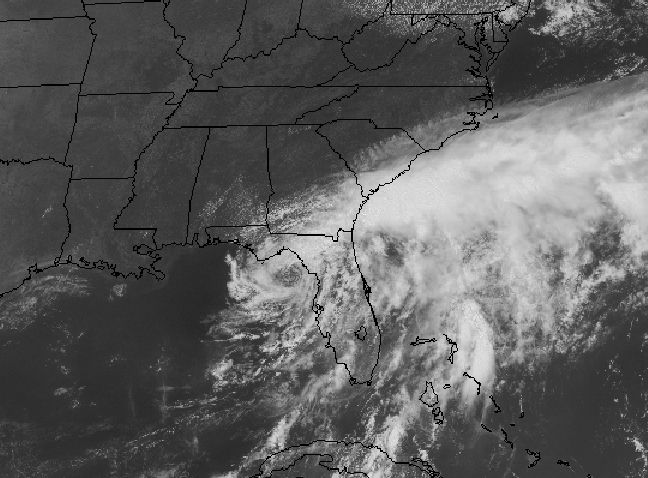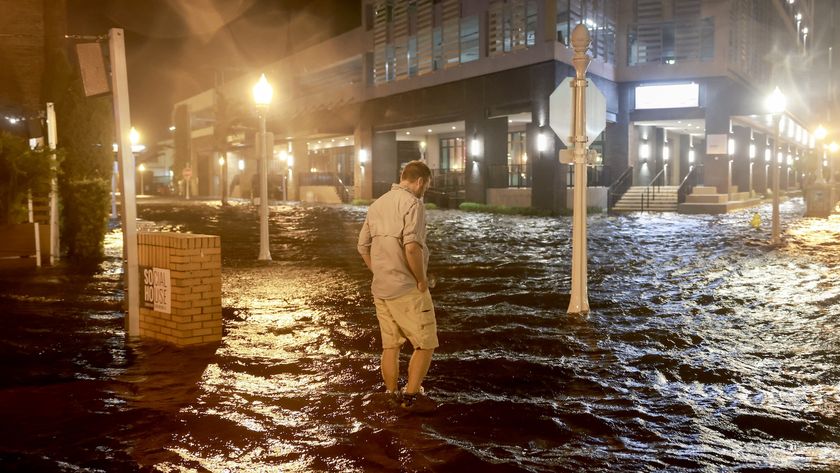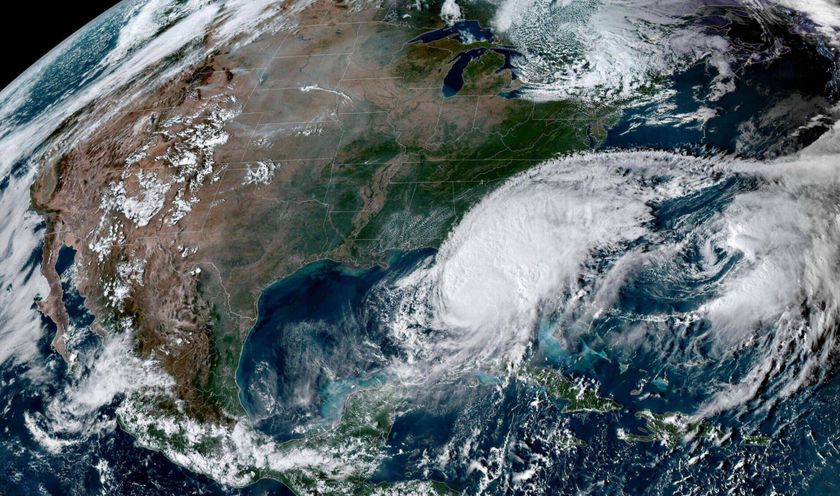
Despite Debby's Downer, 'Normal' Hurricane Season Expected

With Tropical Storm Debby's soggy debut, a record number of early storms have hit the Atlantic basin this year. Yet in spite of the early spate of rough weather, forecasters and researchers aren't revising the outlook for the 2012 Atlantic hurricane season, which is projected to be "near-normal."
When Tropical Storm Debby swirled into action over the Gulf of Mexico on Saturday (June 23), it became the fourth named storm of the season, making this year the first since 1851, when the U.S. storm catalog began, that four tropical storms or hurricanes have appeared before July 1.
Despite the dramatic numbers, it's important to note that this has almost undoubtedly happened in the past, and that forecasters simply didn't have the tools to know it. A bevy of technological tools from satellites to hurricane-hunting aircraft have allowed modern-day forecasters to spy storms their earlier counterparts are likely to have missed: ones small and short-lived, and those that stay far out to sea.
For example, Hurricane Chris, the first hurricane of the 2012 season, spent much of its life wandering over the middle of the Atlantic, and might have escaped the notice of forecasters in an earlier age.
So despite the early onslaught, hurricane experts haven't changed their projections — yet.
"The outlook is still on track," said Gerry Bell, the National Oceanic and Atmospheric Administration's lead seasonal hurricane forecaster.
Near-normal
Sign up for the Live Science daily newsletter now
Get the world’s most fascinating discoveries delivered straight to your inbox.
NOAA's forecast for the 2012 Atlantic hurricane season, issued May 24, said a near-normal season is likely. The outlook projects a total of nine to 15 named storms, a category that covers all tropical storms, whether or not they become hurricanes.
"We're going to stick to our forecast," said Michael Mann, a climate researcher and director of Pennsylvania State University's Earth System Science Center. Mann and colleagues say eight to 15 named storms could churn up in the Atlantic, with 12 the most likely number.
"We believe that our statistical model accounts for the key systematic factors that can be predicted prior to the season," Mann told OurAmazingPlanet in an email.
Indeed, the large-scale climate parameters such as sea-surface temperature and the effects of years-long atmospheric cycles that experts use to make their seasonal projections haven't altered with the early onslaught of storms.
Bell said that this season's first two tropical storms and its only hurricane so far were sparked by remnants of storm systems that grew up over North America. In contrast, the majority of the storms that blow up during the peak of the hurricane season, from August to October, are seeded by tropical atmospheric waves that originate in Africa.
"It's two distinct mechanisms," Bell told OurAmazingPlanet.
El Niño impacts?
Yet changing conditions do sometimes lead federal agencies to alter their forecasts. This year NOAA scientists are keeping an eye out for El Niño, which could develop in the coming months and could change expectations for the hurricane season.
Since 2005, NOAA has issued an updated hurricane outlook in early August, ahead of hurricane season's peak, and the forecast can change. For instance, the updated 2011 outlook raised the range of expected named storms from 12-18 to 14-19.
In all, 20 tropical storms and hurricanes roared to life last year, making 2011 one of the most active seasons on record. [Video: 2011's Hurricanes in 3.5 Minutes]
And although parts of Florida are now facing record rainfall — more than 2 feet (0.6 meters) in some places — courtesy of the excruciatingly slow-moving Tropical Storm Debby, there's no sign that the current woes signal a worsening season, said meteorologist Dennis Feltgen, a spokesman with the National Hurricane Center.
"Even though we've had all this early-season activity, it's in no way a harbinger for the rest of the season," Feltgen said.
Reach Andrea Mustain at amustain@techmedianetwork.com. Follow her on Twitter @AndreaMustain. Follow OurAmazingPlanet for the latest in Earth science and exploration news on Twitter @OAPlanet. We're also on Facebook & Google+.













